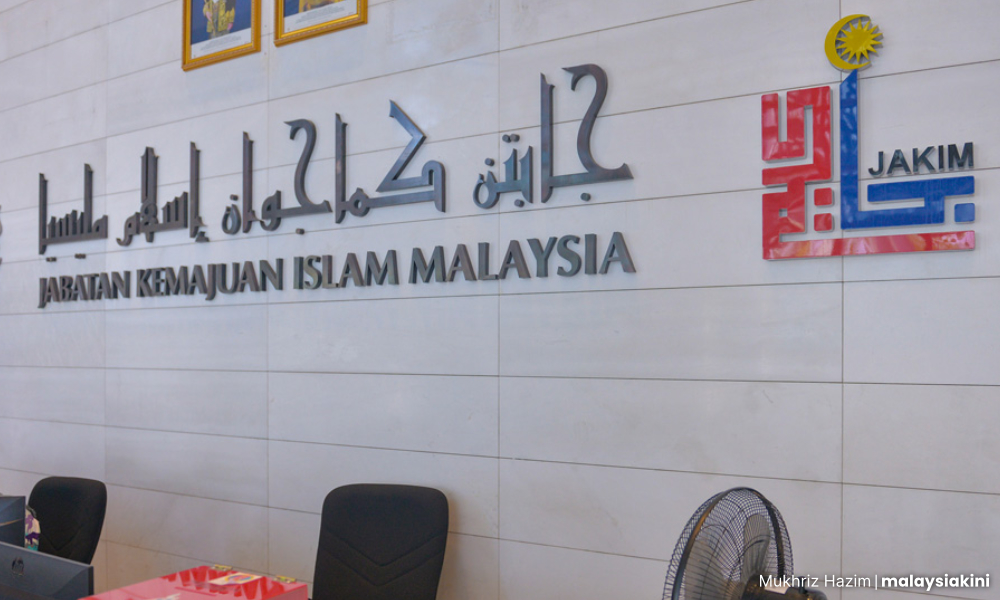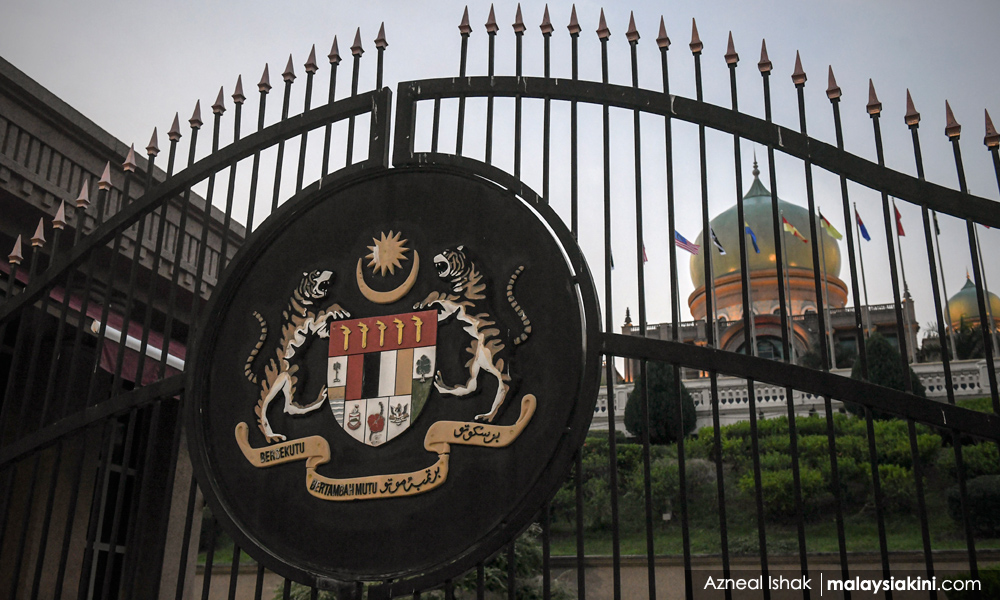Hardly a week goes by without a Malay politician or government official speaking about the plight of the poor bumiputera and the need for more affirmative action.
This has been a convenient political lament for a good 40 years or so. Malaysians of all races have tuned out as they know they don’t mean what they say as their insincerity is on display every day with a track record to match.
As all Malaysians know, a great deal was achieved in the early years of affirmative action, particularly in allowing the majority disenfranchised Malays to gain access to basic rights such as education, healthcare, housing, land and equal employment opportunities within the economy.
That was before a well-meaning affirmative action programme was hijacked and transformed into a racist political movement and normalised.
What is now clearly understood is that the early gains and promises were accompanied by the rise of an elite rent-seeking class of Malays who used race and religion to create a political ecosystem which they wanted to dominate for economic reasons - that co-opted elite non-Malays in the process - which accelerated corruption, diminished the integrity of the institutions of the state and ultimately worked against the disenfranchised Malay poor and created racial disunity.
It made everything about race and religion. The corrosive nature of that system reached its zenith in the last ten years, culminating in the 1MDB debacle and the negative impacts of race-based policies that are felt throughout the country in all aspects of life.
The new government seems to be aware of this and on the surface committed to reversing course with a lot of talk about not tolerating racism and discrimination.
Yet it seems shackled and acts as if it can only take baby steps to dismantle and bury the rot. This is prolonging long over-due reforms, and extending the collective pain being inflicted daily on the average Malaysian.
The most severe harm has been inflicted upon the very bumiputera community that these policies were designed to support. Instead of uplifting the marginalised, it has entrenched inequality and corruption together with a sense of entitlement, all the while creating new barriers to progress.
This is a deep harm, which rather than triggering large-scale reform, continues to serve as a rallying point for politicians who push for even more race-based policies, further entrenching the cycle of exploitation and impeding development. These impacts may well take a generation to reverse even if reforms are put in place today.
Even royalty has spoken out about the debilitating nature of these failed policies on the collective Malay psyche. Sultan Nazrin Shah of Perak, for example, urged Muslims to reject corrupt individuals and those of questionable character, warning against entrusting power to those tainted by corruption and abuse. Yet openly corrupt politicians are revered and remain untouchable.

Thus, when the same architects of this debilitating system propose ideas to uplift the bumiputera, which at the same time seek to deliberately diminish and discriminate against other groups like the Chinese, Indians, Eurasians and the numerous indigenous communities including those in Sabah and Sarawak, we need to be very vigilant and nip them in the bud.
Very often these bad ideas go unchallenged and apart from the odd newspaper report they then seem to disappear from the public discourse yet make their way into policymaking and even become law.
This public complacency and weak political opposition are partially derived from fear of speaking out against special privileges for Malays and a resigned acceptance that there is no point in fighting back because the entire system is corrupt and racially motivated.
This status quo must be reversed. It is the only way to make sure the country fulfils its undoubted potential, and its economic wealth is not unfairly enjoyed and squandered by a small minority.
One of the most alarming examples is the recent proposal by the deputy prime minister to establish a Bumiputera Land Corporation aimed at preserving bumiputera land ownership.
According to this proposal, for agricultural land leases exceeding 20.23ha or industrial land over 8.09ha, 20 percent of the land would need to be surrendered to the government upon lease renewal.
This land would then be allocated for bumiputera businesses in agriculture, industry, and new settlements, with the Bumiputera Land Corporation overseeing the entire process.
Here is an individual whose reputation is now in tatters, as he is currently facing numerous corruption charges in court. His recent acquittal on some charges has raised many eyebrows, prompting widespread scepticism about the commitment to fighting corruption and the political trading which prevents the wheels of justice from turning.
In any other well-governed nation, such individuals wouldn’t even be considered for a ministerial position, or lead a political party, let alone be allowed to lead policy issues. In any society that still upholds basic values, such individuals would be forced to take a more low-key approach away from the public eye until their name is cleared in the courts.
Yet in Malaysia, they are permitted to continue to promote divisive and racist policies with dollops of impunity. These politically driven policy initiatives are presumably to win electoral support from a hapless base that clearly does not mind supporting politicians with tainted reputations so long as they play the race and religion card.
There can be no clearer signal than this that the rot is deep-rooted.
Pro-Malay policies
Malaysians and especially the bumiputera community do not need another bumiputera Ponzi scheme set up to enrich the elites. Nor do they need billions of tax-payers money (contributed by all races) diverted to the strengthening of institutions such as the Islamic Development Department (Jakim), which are led by individuals hard-wired to keep people in the dark and divide the country around issues of race and religion.

If the goal is to address inequality, poorly designed schemes such as these, purporting to support affirmative action are not the solution as these proposals rely on and are motivated by racial discrimination and rent-seeking.
They have no place in sound policymaking, as they represent a pattern of introducing counterproductive policies that serve the self-interest of a few in power, a pattern that has plagued the country for too long.
Under the guise of wealth redistribution and affirmative action for Malays, such initiatives are introduced, almost undercover and passed whilst the majority are asleep at the wheel. They only serve the interests of the elite Malay and their crony non-Malay cliques, not the poor.
Now is the time for Madani to break from the past and completely reject the idea of race and religion in policy-making, grounded in the understanding that to uplift the poor bumiputera, policies must address the root cause of poverty and that means being agnostic to race and religion.
To do that, the government also needs to rapidly weed out - as difficult as it may be with the dynamics of power-sharing - all of those in the seats of power who harbour divisive racial and religious views. A purge is long overdue to build the new Malaysia.
One of the main objectives of the New Economic Policy (NEP) when it was first enacted in the 1970s, was to elevate bumiputera equity ownership to 30 percent. Yet, currently, overall bumiputera equity ownership is still languishing far below the 30 percent target, at just 17.2 percent.
As of 2022, bumiputera stock equity stands at just seven percent, represented by only 62 out of 945 companies listed on Bursa Malaysia.
Furthermore, 387,800 Bumiputera, or 61.5 percent of the national total of 630,400, are unemployed. Among these, 70.8 percent are youth aged 15 to 30 years.
This failure to meet the NEP’s objectives is also an indictment of successive governments and a stark reminder that stacking the government with racists and religious zealots will continue to harm the disenfranchised Malays most and normalise large-scale rent-seeking among the elites, further widening the inequality.
The ASB 2022 annual report reveals that a small fraction of bumiputera unit holders (9.8 percent) controls a disproportionate 82.5 percent of the total value, underscoring a significant wealth gap among Malays – the worst among the major ethnicities in the country.
The majority of those living in absolute poverty (with a median income of less than RM 2,208) are from the bumiputera community, where the poverty rate stands at 7.2 percent, compared to 4.8 percent for Indians and 1.4 percent for Chinese.
Affirmative action
Clearly, wealthy Malays have monopolised this privilege of affirmative action - scholarships, housing loans, access to special funds, GLC and top government jobs etc - leaving poorer bumiputeras further behind and creating a racial divide at the same time as they seek to actively discriminate non-Malays. In this context, the issue is less about race and more about class.
Those chosen to enter the Malay-dominated government and political system are often not motivated by public service. They learn very quickly how to manipulate it, continuing to bring other elite Malays into advantageous positions, leaving ordinary citizens of all races powerless.

They, in turn, seek more power through illegitimate means and run the country like a fiefdom to serve their own needs and their constituency of rent-seekers, not the poor bumiputera or average Malaysian.
This system is now deeply entrenched and if there is a genuine desire to alleviate the struggles of the poor bumiputera then this grip on political power that this elite Malay class has on the nation needs to be uprooted. This must be the top priority of the Madani government.
If it is truly committed to the redistribution of wealth for the benefit of poor bumiputera, it must act with haste.
But if it is timid and allows itself to be shackled by the same small group of Malay elites then its legacy will be one of great promise but failure because it either could not confront and reject racism and religious bigotry or could not weed it out from within the ranks of its leadership.- Mkini
CHANDRAN NAIR is the founder and CEO of Global Institute for Tomorrow and the author of “Dismantling Global White Privilege: Equity for a Post-Western World”.
The views expressed here are those of the author/contributor and do not necessarily represent the views of MMKtT.



No comments:
Post a Comment
Note: Only a member of this blog may post a comment.